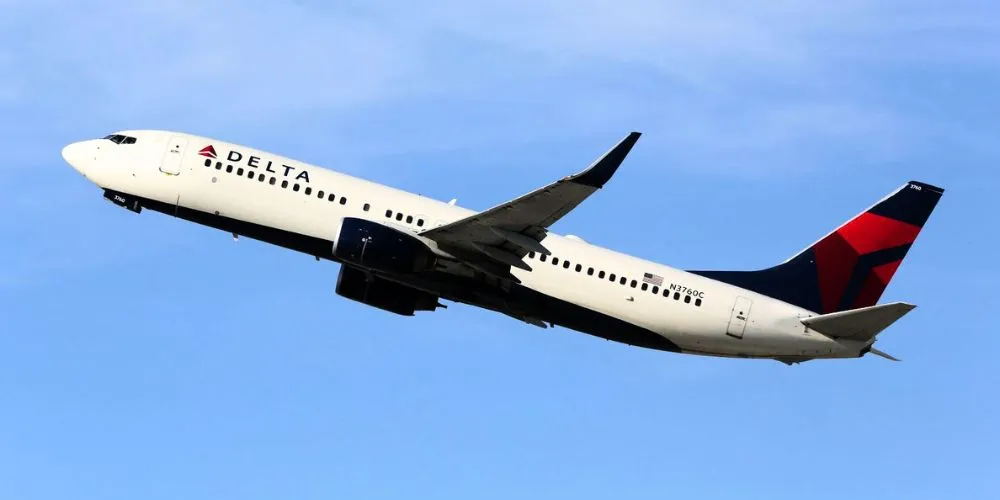Key Points
- Delta Air Lines forecasts mid-single-digit revenue growth in 2025 and a 10% annual earnings growth over the next 3-5 years.
- 57% of Delta’s revenue now comes from premium seating and loyalty programs, up from 40% in 2010.
- Over 70% of first-class domestic seats are now purchased, compared to just 12% 15 years ago.
- Delta plans further cabin segmentation and innovations to cater to high-end travelers.
Delta Air Lines announced on Wednesday that it anticipates steady sales growth in 2025, driven by a resilient economy, robust travel demand, and increased credit card spending, particularly for premium offerings. The airline also projected consistent earnings growth over the coming years.
Delta expects revenue to grow by mid-single digits in 2025 compared to 2024, aligning with analysts’ expectations of approximately 6% growth. In its Investor Day presentation, the carrier outlined plans to expand flight operations by 3% to 4% in 2025, reaffirming its fourth-quarter 2024 outlook. Over the long term, Delta aims to grow adjusted earnings by 10% annually over the next three to five years.
As the most profitable U.S. airline, Delta credits its success to strong partnerships, particularly with American Express, and a focus on attracting high-spending travelers. The airline highlighted increased wealth among high-earning households since 2019 as a key factor in its growth. Millennials and Gen Z consumers, identified as the fastest-growing segments, also contribute to demand.
In contrast to Delta’s optimistic outlook, other companies like Target have recently reported slowing consumer spending. United Airlines, a primary competitor, has made significant strides in capturing high-end travelers and boosting profits, with its shares rising 128% this year compared to Delta’s 60% gain. Both airlines have outperformed the broader market and their peers.
Delta revealed that only 43% of its revenue comes from main cabin tickets, with 57% generated by premium seating and its lucrative loyalty program—a significant shift from 2010, when 60% of revenue was tied to the main cabin. The airline has spent years encouraging customers to pay for first-class tickets previously given as frequent flyer upgrades. Delta President Glen Hauenstein noted that while just 12% of first-class domestic seats were purchased 15 years ago, over 70% are now directly bought by travelers.
Delta is also exploring new ways to segment its cabins further, including offering additional options for premium travelers. The airline did not elaborate on specific plans but hinted at continued innovation in its cabin services. During the Investor Day presentation, executives faced questions about managing future demand, controlling costs, and addressing lessons learned from the CrowdStrike outage in July 2024.




